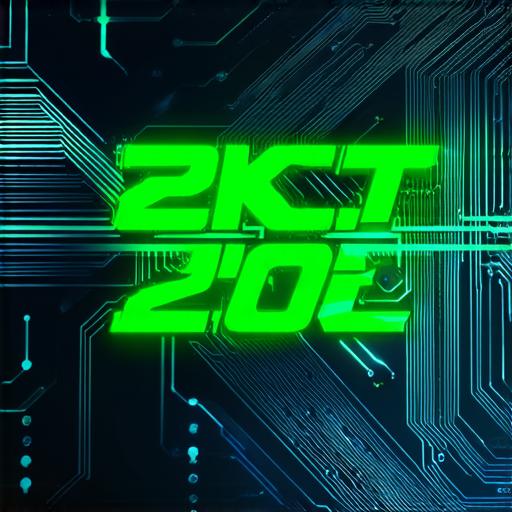The blockchain industry has grown exponentially in recent years, and one of the most important aspects of this technology is smart contracts. Solidity, the programming language used to create smart contracts on the Ethereum blockchain, has become an essential tool for developers to build decentralized applications (dApps) and automate various business processes. In this article, we will explore what solidity blockchain is, its benefits, and some of the most popular use cases for this technology.
What is Solidity Blockchain?
Solidity is a programming language used to write smart contracts on the Ethereum blockchain. It is designed to be easy to learn and use, with a syntax similar to other programming languages such as C++ and Java. Smart contracts are self-executing programs that run on the blockchain and can automate various business processes, such as payments, supply chain management, and voting systems.
Solidity allows developers to create smart contracts that can be executed automatically by the Ethereum network. These smart contracts contain code that specifies how the contract should behave when certain events occur, such as a payment being made or a product being shipped. The contract can then automatically execute these actions based on pre-defined rules and conditions.
Benefits of Solidity Blockchain:
-
Decentralization: Smart contracts are stored on the blockchain, which means they are decentralized and not controlled by any single entity. This makes them more secure and resistant to tampering and fraud.
-
Automation: Smart contracts can automate various business processes, such as payments, supply chain management, and voting systems. This can save time, reduce costs, and increase efficiency.
-
Transparency: All smart contract interactions are recorded on the blockchain, which provides a public ledger of all transactions. This makes it easy to track and verify the integrity of the contract.
-
Security: Smart contracts use cryptographic techniques to ensure the security and privacy of data stored on the blockchain. This makes them resistant to hacking and other forms of cyber-attacks.
-
Flexibility: Solidity is a versatile programming language that can be used to build a wide range of dApps and smart contracts. It is also constantly evolving, with new features being added regularly to meet the needs of developers.
Popular Use Cases for Solidity Blockchain:
-
Decentralized Finance (DeFi): DeFi refers to a wide range of financial applications built on the blockchain, such as decentralized exchanges, lending platforms, and insurance systems. Solidity is used extensively in these applications, allowing developers to build secure and efficient smart contracts that automate various financial processes.
-
Supply Chain Management: Smart contracts can be used to automate supply chain management processes, such as tracking the movement of goods, verifying their authenticity, and ensuring compliance with regulations. This can help reduce costs, increase efficiency, and improve transparency in the supply chain.
-
Voting Systems: Solidity can be used to build secure and transparent voting systems that are resistant to tampering and fraud. These systems can enable more efficient and reliable voting processes, which can be particularly important in democratic societies.
-
Identity Management: Smart contracts can be used to manage identity and authentication, allowing users to control their personal data and verify their identity securely and efficiently. This can help reduce identity theft, improve privacy, and increase security online.
-
Predictive Analytics: Solidity can be used to build predictive analytics applications that use machine learning algorithms to analyze data and make predictions about future events. These applications can be used in a wide range of industries, from finance to healthcare, to help organizations make more informed decisions.
FAQs:
1. What is the difference between Solidity and other programming languages?
Solidity is specifically designed for building smart contracts on the Ethereum blockchain, while other programming languages are used for a wide range of applications. Solidity has a syntax similar to other programming languages, but it also includes features that are specific to smart contracts, such as event handling and security features.
2. Can Solidity be used outside of the Ethereum network?

Solidity is primarily used on the Ethereum blockchain, but it can also be used on other blockchains that support smart contracts, such as EOS and Hyperledger Fabric. However, most developers use Solidity specifically for building smart contracts on the Ethereum network.
3. What are some of the potential risks associated with using Solidity and smart contracts?
As with any technology, there are potential risks associated with using Solidity and smart contracts. These risks include security vulnerabilities, which can be exploited by hackers, and legal risks, which can arise from ambiguous or poorly designed contracts. It is important for developers to carefully design and test their smart contracts to minimize these risks.
4. How does the Ethereum network ensure the security of smart contracts?
The Ethereum network uses cryptographic techniques, such as public-key encryption and hashing, to ensure the security of smart contracts. These techniques make it difficult for hackers to tamper with or steal data stored on the blockchain. Additionally, the Ethereum community actively works to identify and fix security vulnerabilities in the platform.
5. How does Solidity compare to other programming languages for building dApps?
Solidity is a dedicated language for building smart contracts on the Ethereum blockchain, while other programming languages can be used for a wide range of applications. However, many developers prefer Solidity because of its simplicity and ease of use, as well as its ability to integrate seamlessly with the Ethereum network. Ultimately, the choice of language will depend on the specific needs of the project and the skills of the development team.
6. Summary:
Solidity is a powerful programming language that has become an essential tool for developers building decentralized applications on the Ethereum blockchain. Its benefits include decentralization, automation, transparency, security, and flexibility, making it well-suited for a wide range of use cases, from finance to supply chain management and beyond. As the blockchain industry continues to grow, smart contracts and Solidity are likely to play an increasingly important role in automating business processes and enabling more efficient and secure data sharing.
